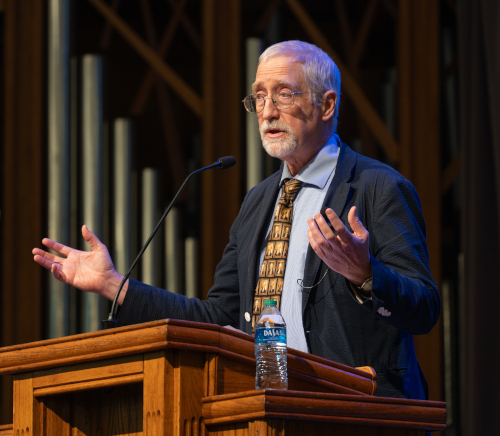JACKSON, Tenn. — Oct. 23, 2023 — Pulitzer Prize-winning historian Alan Taylor said early Americans were a divided people, and the nation wasn’t generally united until well after the Civil War.
In his Oct. 16 address at Union University as part of the annual Carls-Schwerdfeger History Lectureship, Taylor addressed the topic “American Republics: Union, Disunion, and Expansion, 1783-1850.” Taylor is the Thomas Jefferson Memorial Foundation Professor of History at the University of Virginia.
“At the time of the American Revolution, very few people thought of themselves as first and foremost, Americans,” Taylor said. “We can’t really understand the early United States if we impose upon them a sense of nationality.”
While colonists were fighting for freedom during the American Revolution, they saw themselves as more closely tied to their individual states than to the nation as a whole, Taylor said. The creation of a national union was a challenging process in the years after the Revolutionary War, with a series of compromises that helped seal a national constitution.
Taylor concluded his lecture by discussing the phrase “manifest destiny,” which is often used when describing American expansion.
“Americans did expand during the first half of the 19th century, quite dramatically so,” Taylor said. “But they did so with a lot less confidence than the phrase ‘manifest destiny’ suggests to us. There was nothing automatic about it. It involved lots of decisions, lots of sacrifices and it ultimately came at an extremely high cost to the United States and blew apart the original American union and led to a reconstitution of a different kind of union in the wake of the Civil War.”
The Carls-Schwerdfeger History Lectureship seeks to bring historians and lecturers from across the country to Union University for the benefit of the academic community and the broader public.

